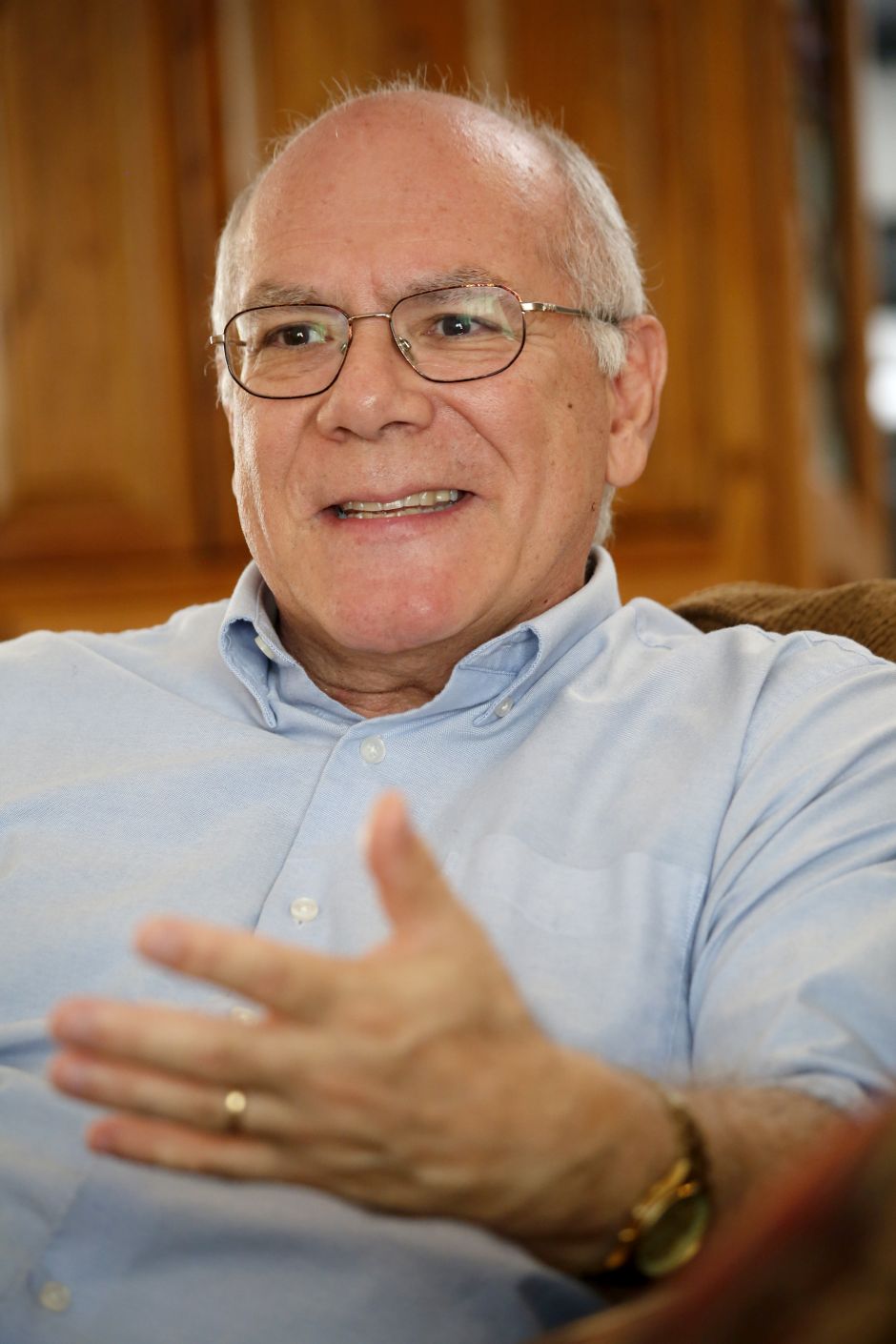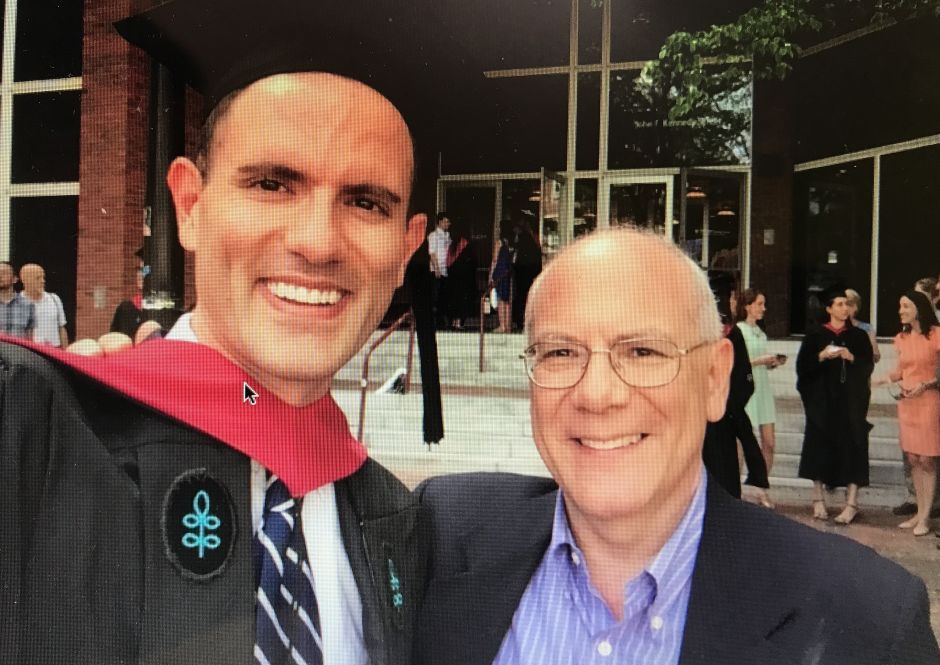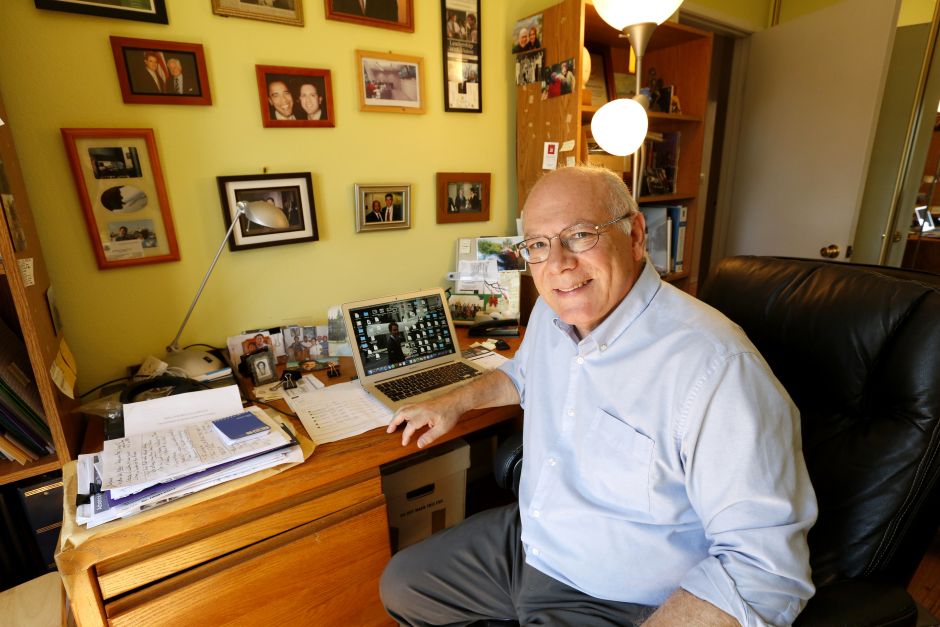Néstor Fantini was a ‘prisoner of conscience’ during the military dictatorship of Argentina
Néstor Fantini was kidnapped, tortured and locked up for four years by the military in Argentina in the 1970s because of his human rights activism.
Worse, his eyes saw one of his companions killed. In total he lost 30 of them. Forty years later, Amnesty International (AI), the body that saved his life and fought for his release by declaring him a prisoner of conscience,
"The reality is that I have always given talks to Amnesty International about that time in Argentina," says Nestor Fantini, who in 1980 – months after having left free – emigrated to Canada.
He left with $ 150 in his wallet, a money his mother gave him, "and a yellow suitcase that I threw away very recently," he recalls.
Nestor says he lived in Toronto, Canada, until 1987. He ended up marrying Mev Porter, who was in charge of the AI group that led a campaign for his release.

"I was released on July 14, 1979 without waiting for it, just the day Mev took my mother to visit me in prison," he says. And he says that the first thing he wanted to eat was a Milanese.
Although he was confused in terms of his release, he was reassured that his life was safe because Amnesty International was protecting him. He had exit visas for Canada, Sweden or France.
“I opted for Canada because I had learned English at school and because Mev was Canadian-American,” he says.
Nestor had with Mev his only son Jonathan, a Harvard graduate and who worked in Congress and the White House in the Obama period.
From his home in Northridge, Nestor talks with La Opinion.
The beginning of activism
He says that when he became involved in activism in Argentina, he studied engineering at the National University of Córdoba and worked at the IKA-Renault car factory.
“I studied in the best schools in the country where they talked to us about the importance of human rights and democracy. But what we saw in the classroom did not match the reality of military dictatorships, ”he says.
Definitely what marked his life was a trip he made to the north of his country where, as he indicates, he could see the acute poverty in which the indigenous coyas lived.
"I was also strongly impacted by" El Cordobazo, "a May 1969 movement in which the workers of the auto factories were calling for elections and protesting against the dictatorship," he says.

In the midst of that period of political upheaval, total censorship, kidnappings, disappearances and murders of teachers, trade unionists and progressive leaders that the Military Board considered terrorists and subversives, Nestor emerged as a student leader.
“There were even book burns, For them the books and ideas of Freud and his psychoanalysis, those of Einstein with his theories of relativity; and Picasso's paintings with Cubism promoted values that questioned the status quo of science, the arts and politics, ”he explains.
“Therefore, (also) the foundations of Western and Christian society from which they (Military Board) felt historical defenders. All other things were values and subversive ideology, ”he adds.
Your passage in clandestine centers
Nestor was arrested on September 5, 1975 when he was 21 years old, a year before the military coup on March 24, 1976. "They have been looking for me for a while," he says.
“They took me to D2, one of the clandestine centers that was next to the Cathedral of Cordoba. We had an idea of time by the chimes of the Church. They tortured me. They gave me electroshocks, they put the gun in my mouth. There they killed 30 of my colleagues, ”he recalls.
Nestor went through four political prisons of the military. One of the hardest moments, was when their companions in the UP1 of Córdoba, in 1976 considered a clandestine center, were forced to kneel and pray.
“This is the last thing they are going to do, they told us and they put us on a plane between insults and blows. I thought they were going to kill us, but they only took us to the Sierra Chica Prison, south of the province of Buenos Aires, that was the third political prison I was in, ”he says.
Last March, Nestor returned with his son Jonathan and his sister who lives in Brazil to D2, which is now a memorial museum. "The three of us cried a lot," he says.
"We went to see the house where General Luciano Benjamín Menéndez lived, known as La Hiena, for his cruelty," he recalls.
During a trip he made to Argentina to say goodbye to his father who was in his last days, on July 28, 2010 he had to coincide with the trial of several soldiers who participated in the era of state terrorism.
“The happiness he gave me to attend the trial and shout at him, murderer! to Menendez, it was marred by the death of my father, ”he says.
Remembering that time in his life, Nestor, who became a sociologist in the United States and was a professor for 28 years, says he is obviously not the same person as 40 years ago.
“Now I realize that it was crazy to confront the military, but if I was born again, I would not change anything I did to achieve the dreams of our generation,” he says.

However, Nestor reveals that although he is still very liberal, he has become more pragmatic.
"I support Bernie (Sanders) and Elizabeth Warren for their desires for justice and social change, but I like to play with electoral mathematics and I think Biden has a better chance of reconquering the White House," he says.
Nestor, 66, returned to school after retiring.
“I teach Introduction to Criminology and another on the Great Social Problems at the Rio Hondo de Whittier College. I also teach online at the American International College, ”he talks.









